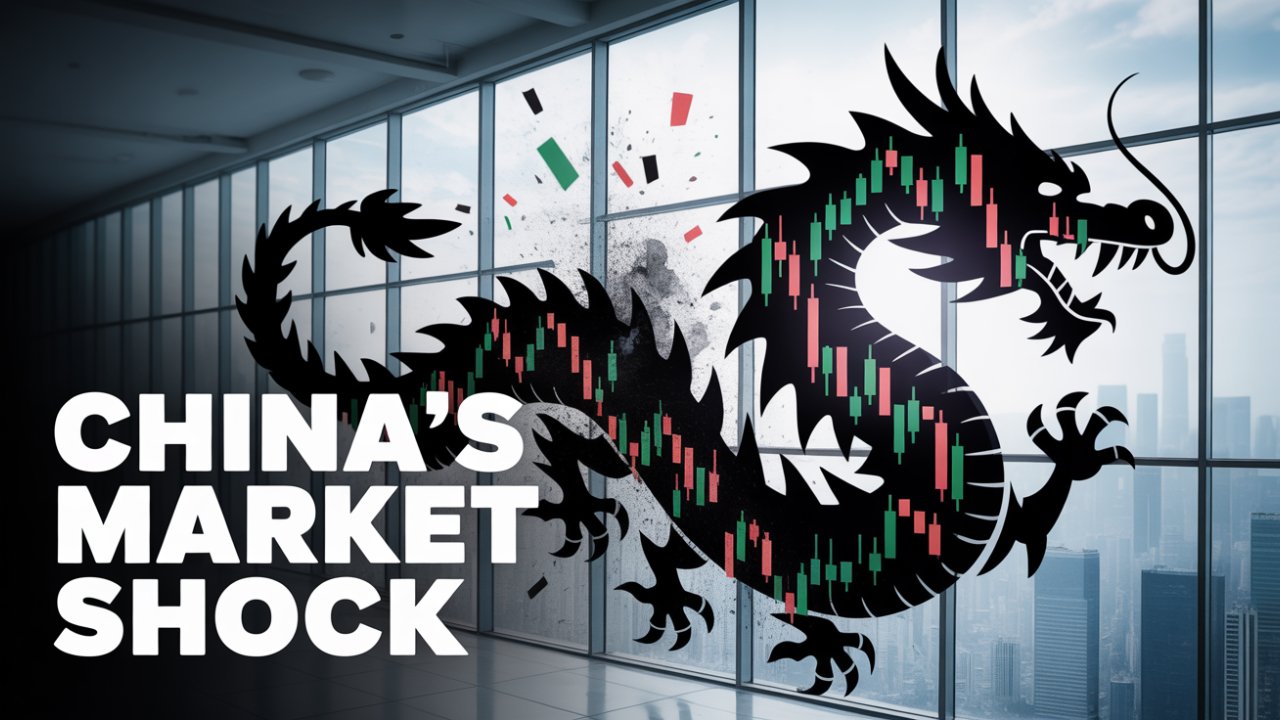1. China’s Economic Slowdown is Raising Global Concerns
Since mid-2023, China has been facing an economic slowdown. Growth has reduced, youth unemployment has risen, and major property developers have defaulted. These developments have triggered alarms among global investors. Once considered largely domestic, China’s financial troubles are now viewed as globally significant due to its massive role in trade and investment. Its domestic economic turbulence has the potential to create waves across the globe.
2. China’s Deepening Integration with Global Markets
Earlier, China’s financial system was closed — its capital account was restricted, foreign investment was limited, and the currency was tightly managed. But over the past few years, China has opened its financial markets, liberalized some sectors, and increased foreign investor participation. This shift has made its economy more connected to global capital markets. Now, any disturbance in China is more likely to affect stock, bond, and commodity markets around the world.
3. What Are Macro Risk Shocks and Why Do They Matter
Macro risk shocks are sudden, unexpected, and large-scale economic changes that can destabilize financial systems. These may include abrupt policy changes (like interest rate hikes), debt defaults, currency devaluation, or international trade disruptions. In the case of China, such shocks are no longer limited to its borders. Their global impact is growing because China has become a central player in global supply chains, energy consumption, and manufacturing.
4. Why the World is Paying Closer Attention to China
The world earlier believed that China’s financial disturbances stayed within its boundaries. However, China’s rising global footprint has changed that perception. As the biggest exporter and a top consumer of resources, its internal problems now carry implications for trade partners, investors, and central banks globally. China’s domestic policy now indirectly influences everything from stock prices in Europe to commodity prices in Brazil and India.
5. What the 2017–2021 Economic Study Revealed
A study using the Bayesian Vector Autoregression (BVAR) model analyzed daily market data from 2017 to 2021 to understand how shocks from China affect the world. The study categorized shocks into five types: China’s macroeconomic risks and monetary policy, America’s macroeconomic risks and monetary policy, and global risks. Using this model, researchers quantified how these shocks impacted stock, bond, and commodity markets globally. The result? China-originated shocks are not only real, but increasingly influential.
6. Impact on Global Stock Markets
Negative news from China — like poor GDP figures, policy uncertainty, or credit defaults — leads to an immediate reaction in global equity markets. While the overall impact is smaller compared to US-originated shocks, it’s still substantial. Investors across the globe become wary, resulting in cautious or defensive investment behaviors. Emerging markets and developed economies alike experience ripples, especially those with economic ties to China.
7. Strongest Effects Seen in Commodity Markets
China is the largest global consumer of energy and industrial metals such as iron, copper, and aluminum. So when Chinese economic activity slows, the demand for these commodities declines. This leads to price drops in international markets, affecting exporting countries like Australia, Brazil, and even parts of Africa. The impact is sometimes stronger than US-based shocks in this sector because China’s demand dominates these markets.
8. European Banks Also Feel the Shockwaves
European banking shares are moderately affected by shocks from China. But during periods of market stress — like geopolitical tension or economic downturn — this effect intensifies. Banks with significant business, loans, or investment exposure in China are particularly vulnerable. For instance, a sudden collapse in Chinese real estate may lower investor confidence in European banks heavily tied to property loans or Chinese clients.
9. China’s Policy Shift Will Amplify Global Impact
China is gradually moving from a tightly controlled financial model to a more market-based approach. Currency, interest rates, and credit markets are being liberalized. As these reforms deepen, China’s economic decisions and fluctuations will be felt faster and more deeply in global markets. The country’s internal policy environment is quickly becoming a global concern, not just for investors, but also for governments and international organizations.
10. Why It’s Critical to Monitor China’s Economy Closely
Given the growing integration of China’s economy with global trade, finance, and supply chains, it’s more important than ever to monitor developments there. If China’s economy thrives, it boosts global trade and investment. But if it falters, the shock can ripple across continents. Policymakers, central banks, and global corporations must stay informed and ready to respond to China’s economic shifts to manage financial stability effectively.
Conclusion: China – A Global Economic Indicator, Not Just a Country
China is no longer an isolated economic player — it is a powerful influencer of global financial trends. Its macroeconomic risks, policy decisions, and financial reforms all have international consequences. Whether it’s stock markets, commodity prices, or banking systems, the world is increasingly responsive to developments in China. In today’s interconnected economy, ignoring China is not an option. Instead, proactive observation, risk assessment, and policy preparation are essential to navigate the future.






